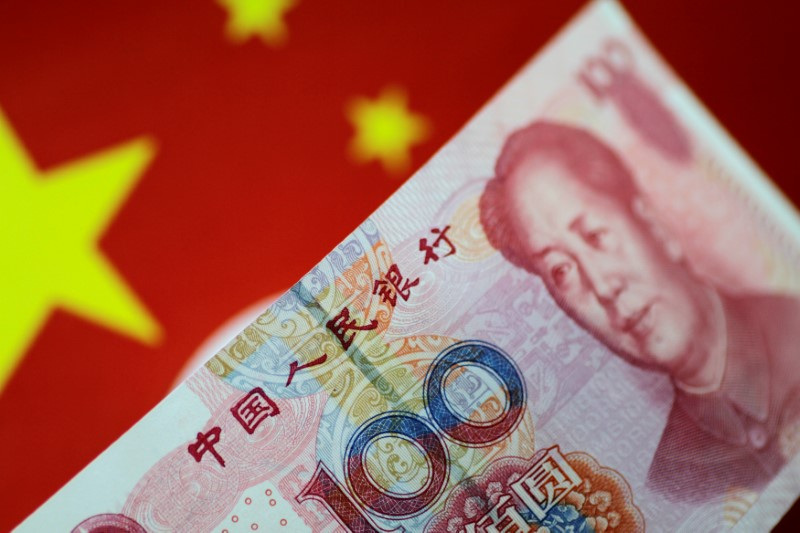BEIJING (Reuters) - China's new yuan loans likely fell sharply in July from the previous month, a Reuters poll showed on Friday, dragged down by tepid credit demand and seasonal factors even as the central bank steps up policy support for the economy.
Chinese banks are estimated to have issued 450 billion yuan ($62.80 billion) in net new yuan loans last month, down about 79% from June's 2.13 trillion yuan, according to the median estimate in the survey of 19 economists.
But the expected new loans would be higher than the 345.9 billion yuan issued in the same month a year earlier.
Analysts say bank lending usually falls back in July for seasonal factors.
Banks doled out 13.27 trillion yuan in new loans in the first half, versus a record 15.73 trillion yuan a year earlier.
While seasonal factors are likely to have dented net new loans in July, year-on-year lending growth - which reflects underlying trends - may show some steadying, analysts at Capital Economics said in a note.
"On that basis, bank loan growth probably stabilised in July. The contraction in home sales has eased during the past couple of months which, given the lagged effect on mortgage disbursements, should be starting to reduce the drag on lending to households," they said.
Outstanding yuan loans were expected to grow by 8.8% last month from a year earlier, the same as in June, the poll showed.
Broad M2 money supply growth in July was seen at 6.1%, down further from 6.2% in June, according to the median estimate in the survey of 26 economists.
Last month, the People's Bank of China (PBOC) surprised markets by cutting major interest rates, including the interest rate on its medium-term lending facility (MLF) operation, in a bid to bolster growth.
The PBOC pledged to lower financing costs and step up countercyclical adjustments at a meeting last week.
A prolonged property downturn and weak household income growth expectations have soured business investment and consumer confidence. July economic indicators showed exports growth slowed but consumer prices rose at a faster-than-expected pace, partly due to weather disruptions to food supplies.
More activity data including July retail sales, industrial output and investment are expected to be released next week, offering more clues on economic momentum in the second half of 2024.
Any acceleration in government bond issuance could help boost growth of total social financing (TSF), a broad measure of credit and liquidity in the economy, which slowed to 8.1% in June from 8.4% in May.

In July, TSF is expected to fall to 1.1 trillion yuan from 3.3 trillion yuan in June.
($1 = 7.1658 Chinese yuan renminbi)
(Polling by Rahul Trivedi and Devayani Sathyan; Reporting by Ellen Zhang and Kevin Yao; Editing by Shri Navaratnam)